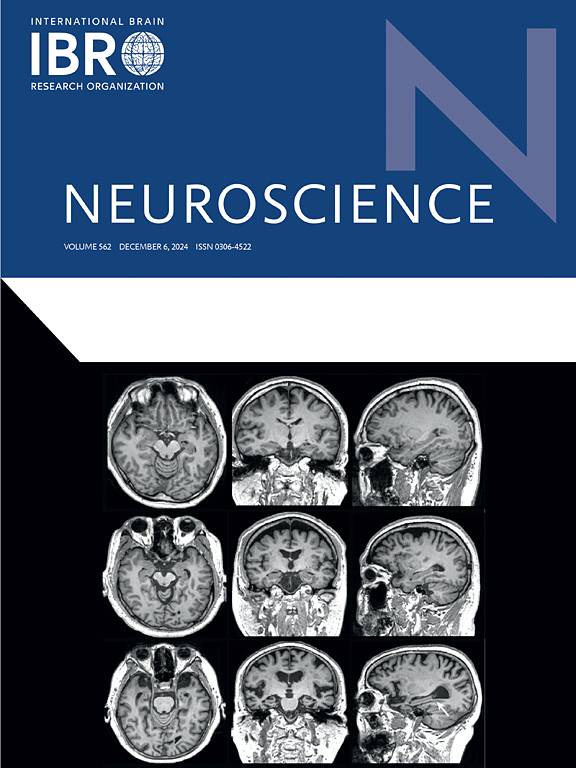p53 inhibition during audiogenic kindling in Krushinsky-Molodkina rats attenuates seizure severity and prevents neurodegeneration in the hippocampus
IF 2.9
3区 医学
Q2 NEUROSCIENCES
引用次数: 0
Abstract
In the present study, we analyzed the effects of the p53 inhibitor pifithrin-α (PFT) on the expression of brainstem audiogenic seizures (AGS) and limbic seizures in Krushinsky-Molodkina (KM) rats genetically prone to AGS. To reproduce limbic/mesial temporal lobe epilepsy (TLE)-like condition in KM rats, we used repetitive AGS stimulations (audiogenic kindling) during 14 days. In parallel with AGS stimulations, KM rats received daily intraperitoneal injections of PFT. Our data demonstrated that PFT treatment significantly decreased the duration and severity of both brainstem AGS and limbic seizures. In addition, PFT partially prevented the kindling-induced neurodegeneration and activation of apoptotic mechanisms in the hippocampus of KM rats. Moreover, PFT treatment led to the persistent upregulation of anti-apoptotic Bcl-2, along with GluA2 and GluN2A, glutamate receptor subunits which are involved into the mechanisms supporting cell survival and preventing neuronal hyperexcitability. Altogether, our data confirm that p53 can be considered as a perspective target for the development of novel strategies to mitigate seizure activity and avert its deleterious consequences.

Krushinsky-Molodkina大鼠听原点燃过程中p53抑制可减轻癫痫发作严重程度并防止海马神经退行性变
在本研究中,我们分析了 p53 抑制剂 pifithrin-α (PFT) 对 Krushinsky-Molodkina (KM) 大鼠脑干致听性癫痫发作(AGS)和肢端癫痫发作的影响。为了在 KM 大鼠中再现类似颞叶癫痫(TLE)的肢端/髓端癫痫,我们对其进行了为期 14 天的重复性 AGS 刺激(致听性点燃)。在刺激 AGS 的同时,KM 大鼠每天腹腔注射 PFT。我们的数据表明,PFT 治疗可显著减少脑干 AGS 和边缘癫痫发作的持续时间和严重程度。此外,PFT 还部分防止了 KM 大鼠海马中由火药诱导的神经变性和凋亡机制的激活。此外,PFT 治疗导致抗凋亡的 Bcl-2 以及谷氨酸受体亚基 GluA2 和 GluN2A 持续上调,而谷氨酸受体亚基参与支持细胞存活和防止神经元过度兴奋的机制。总之,我们的数据证实,p53 可被视为开发新战略的一个视角目标,以减轻癫痫发作活动并避免其有害后果。
本文章由计算机程序翻译,如有差异,请以英文原文为准。
求助全文
约1分钟内获得全文
求助全文
来源期刊

Neuroscience
医学-神经科学
CiteScore
6.20
自引率
0.00%
发文量
394
审稿时长
52 days
期刊介绍:
Neuroscience publishes papers describing the results of original research on any aspect of the scientific study of the nervous system. Any paper, however short, will be considered for publication provided that it reports significant, new and carefully confirmed findings with full experimental details.
 求助内容:
求助内容: 应助结果提醒方式:
应助结果提醒方式:


